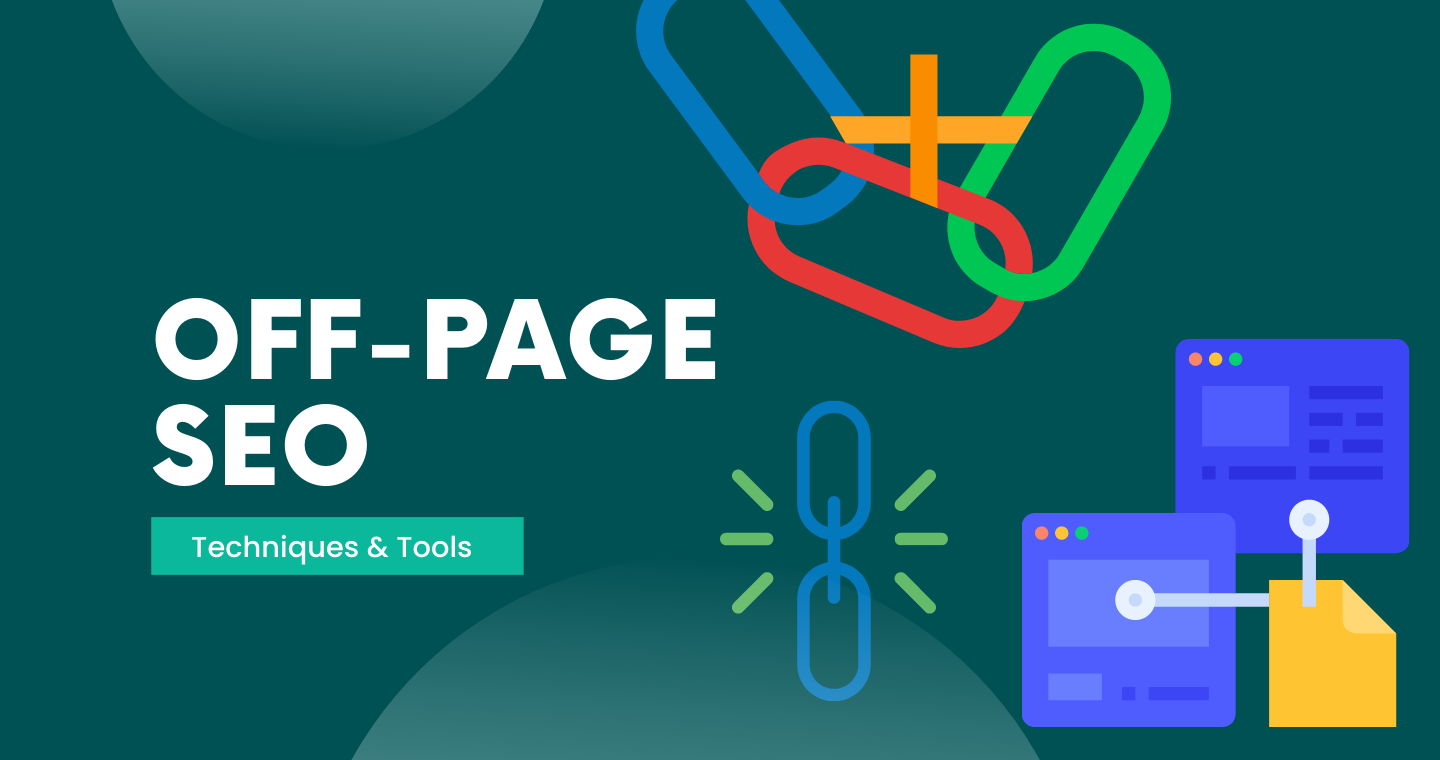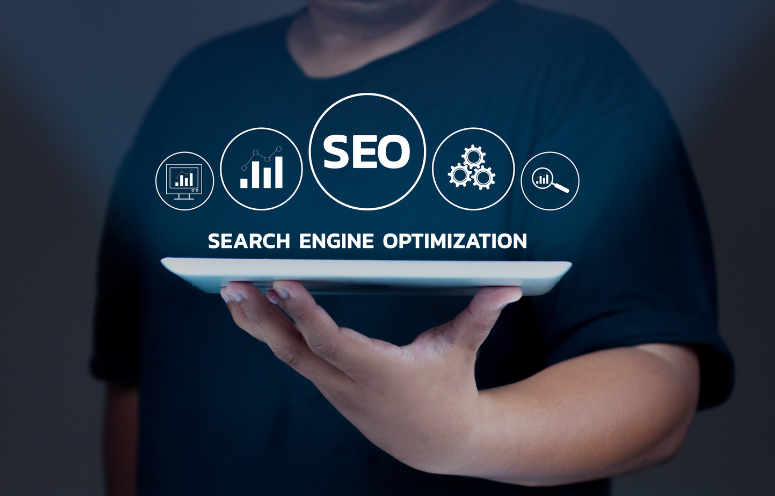-
Table of Contents
The Ultimate Guide to Off-Page SEO Techniques: Boost Your Website’s Visibility and Dominate Search Rankings.
The Ultimate Guide to Off-Page SEO Techniques is a comprehensive resource that provides valuable insights and strategies for improving a website’s search engine optimization (SEO) through off-page techniques. This guide covers various off-page SEO methods, including link building, social media marketing, influencer outreach, content promotion, and more. By implementing these techniques, website owners and digital marketers can enhance their online visibility, increase organic traffic, and improve their search engine rankings. Whether you are a beginner or an experienced SEO professional, this guide offers practical tips and step-by-step instructions to help you optimize your website’s off-page SEO effectively.
The Importance of Off-Page SEO Techniques for Boosting Website Rankings
The Importance of Off-Page SEO Techniques for Boosting Website Rankings
In the world of digital marketing, search engine optimization (SEO) plays a crucial role in determining the success of a website. While on-page SEO techniques focus on optimizing the content and structure of a website, off-page SEO techniques are equally important for boosting website rankings. Off-page SEO refers to the actions taken outside of a website to improve its search engine visibility and credibility.
One of the primary reasons why off-page SEO techniques are essential is that search engines, such as Google, consider them as a vote of confidence from other websites. When reputable websites link to your site, search engines perceive it as a signal that your website is trustworthy and relevant. This, in turn, can significantly impact your website’s rankings in search engine results pages (SERPs).
Backlinks, also known as inbound links, are the backbone of off-page SEO. These are links from other websites that direct users to your site. The quality and quantity of backlinks are crucial factors that search engines consider when determining the authority and relevance of a website. The more high-quality backlinks you have, the more likely your website will rank higher in search results.
However, it’s important to note that not all backlinks are created equal. Search engines prioritize backlinks from authoritative and relevant websites. For example, if you run a fitness blog and receive a backlink from a reputable fitness magazine, it carries more weight than a backlink from an unrelated website. Therefore, it’s crucial to focus on building high-quality backlinks from relevant sources to enhance your off-page SEO efforts.
Social media presence is another crucial aspect of off-page SEO. Social media platforms provide an excellent opportunity to engage with your target audience, build brand awareness, and generate traffic to your website. By sharing valuable content and interacting with your followers, you can increase your website’s visibility and attract potential customers. Additionally, social signals, such as likes, shares, and comments, can indirectly impact your website’s rankings.
In addition to backlinks and social media, online directories and listings are also important for off-page SEO. Submitting your website to reputable directories and listings can improve your website’s visibility and credibility. These directories act as online phone books, allowing users to find businesses or websites in specific categories. By ensuring your website is listed in relevant directories, you increase the chances of attracting targeted traffic and improving your website’s rankings.
Furthermore, off-page SEO techniques also include influencer marketing and guest blogging. Collaborating with influencers in your industry can help you reach a wider audience and gain valuable backlinks. Guest blogging involves writing and publishing articles on other websites, which allows you to showcase your expertise and gain exposure to a new audience. Both strategies can significantly enhance your off-page SEO efforts and boost your website rankings.
In conclusion, off-page SEO techniques are crucial for boosting website rankings. Backlinks, social media presence, online directories, influencer marketing, and guest blogging are all essential components of a successful off-page SEO strategy. By focusing on these techniques and consistently building a strong online presence, you can improve your website’s visibility, credibility, and ultimately, its rankings in search engine results.
Effective Link Building Strategies for Off-Page SEO
Effective Link Building Strategies for Off-Page SEO
When it comes to off-page SEO, one of the most crucial aspects is link building. Link building refers to the process of acquiring high-quality backlinks from other websites to your own. These backlinks act as votes of confidence for your website, signaling to search engines that your content is valuable and trustworthy. In this section, we will explore some effective link building strategies that can help boost your off-page SEO efforts.
One of the most common and effective link building strategies is guest blogging. Guest blogging involves writing and publishing articles on other websites in your industry. By doing so, you not only gain exposure to a new audience but also have the opportunity to include a link back to your own website within the article. This not only helps drive traffic to your site but also improves your website’s authority in the eyes of search engines.
Another effective link building strategy is broken link building. This technique involves finding broken links on other websites and reaching out to the website owners to suggest replacing the broken link with a link to your own relevant content. This strategy not only helps you acquire high-quality backlinks but also provides value to the website owner by helping them fix broken links on their site.
Social media platforms can also be a valuable tool for link building. By actively engaging with your audience on social media, you can increase the chances of your content being shared and linked to by others. Additionally, many social media platforms allow you to include links in your profile or posts, providing another opportunity for backlinks.
Collaborating with influencers and industry experts is another effective link building strategy. By partnering with influencers or experts in your industry, you can leverage their audience and credibility to gain exposure and acquire backlinks. This can be done through guest posting, interviews, or collaborations on content creation.
Furthermore, participating in online communities and forums related to your industry can also help build links. By actively engaging in discussions and providing valuable insights, you can establish yourself as an authority in your field. This can lead to others linking to your website as a trusted source of information.
Lastly, creating and promoting valuable content is essential for successful link building. When you consistently produce high-quality content that is informative, engaging, and shareable, other websites are more likely to link to it. This can be achieved through blog posts, infographics, videos, or any other form of content that resonates with your target audience.
In conclusion, effective link building is a crucial component of off-page SEO. By implementing strategies such as guest blogging, broken link building, social media engagement, influencer collaborations, participation in online communities, and creating valuable content, you can improve your website’s authority and visibility in search engine rankings. Remember, link building is an ongoing process that requires time and effort, but the rewards in terms of increased organic traffic and improved search engine rankings are well worth it.
Leveraging Social Media for Off-Page SEO Success
Social media has become an integral part of our daily lives, and it has also become a powerful tool for businesses to connect with their target audience. When it comes to off-page SEO, leveraging social media can be a game-changer for your website’s success. In this section, we will explore the various ways you can use social media to boost your off-page SEO efforts.
First and foremost, it is crucial to establish a strong presence on popular social media platforms such as Facebook, Twitter, Instagram, and LinkedIn. These platforms have millions of active users, and by creating engaging and shareable content, you can increase your brand’s visibility and drive traffic to your website. Remember to optimize your social media profiles by using relevant keywords and including a link to your website.
One effective off-page SEO technique is to actively engage with your audience on social media. Responding to comments, answering questions, and participating in discussions not only helps build a loyal community but also signals to search engines that your website is trustworthy and authoritative. Encourage your followers to share your content by including social sharing buttons on your website and creating compelling calls-to-action.
Another way to leverage social media for off-page SEO success is by collaborating with influencers in your industry. Influencers have a large following and can help amplify your brand’s reach. Reach out to influencers who align with your brand values and offer them incentives to promote your content or products. This can result in increased brand awareness, website traffic, and valuable backlinks.
Social media platforms also provide an excellent opportunity for content promotion. When you create high-quality content on your website, share it across your social media channels. This not only drives traffic to your website but also increases the chances of your content being shared by others. Remember to optimize your social media posts by using relevant keywords, hashtags, and eye-catching visuals to attract attention.
In addition to promoting your own content, it is equally important to share and engage with content from other reputable sources in your industry. By doing so, you position yourself as a valuable resource and build relationships with other influencers and thought leaders. This can lead to opportunities for guest blogging, collaborations, and mentions, all of which contribute to your off-page SEO efforts.
Social media platforms also offer advertising options that can further boost your off-page SEO. Paid social media ads allow you to target specific demographics, interests, and behaviors, ensuring that your content reaches the right audience. By driving targeted traffic to your website, you increase the chances of acquiring high-quality backlinks and improving your search engine rankings.
Lastly, monitoring and analyzing your social media efforts is crucial for optimizing your off-page SEO strategy. Use social media analytics tools to track key metrics such as engagement, reach, and conversions. This data will help you identify what is working and what needs improvement, allowing you to refine your social media strategy for maximum impact.
In conclusion, leveraging social media for off-page SEO success is a must in today’s digital landscape. By establishing a strong presence, engaging with your audience, collaborating with influencers, promoting your content, sharing industry-related content, utilizing paid advertising, and monitoring your efforts, you can significantly improve your website’s visibility, drive traffic, and ultimately boost your search engine rankings. So, don’t underestimate the power of social media in your off-page SEO strategy and start implementing these techniques today.In conclusion, The Ultimate Guide to Off-Page SEO Techniques provides a comprehensive overview of various strategies and tactics that can be employed to improve a website’s search engine rankings. It covers a wide range of off-page SEO techniques, including link building, social media marketing, influencer outreach, and content promotion. The guide emphasizes the importance of building high-quality backlinks from authoritative websites, as well as engaging with relevant online communities and influencers. By implementing the strategies outlined in this guide, website owners can enhance their online visibility, increase organic traffic, and ultimately improve their overall SEO performance.




